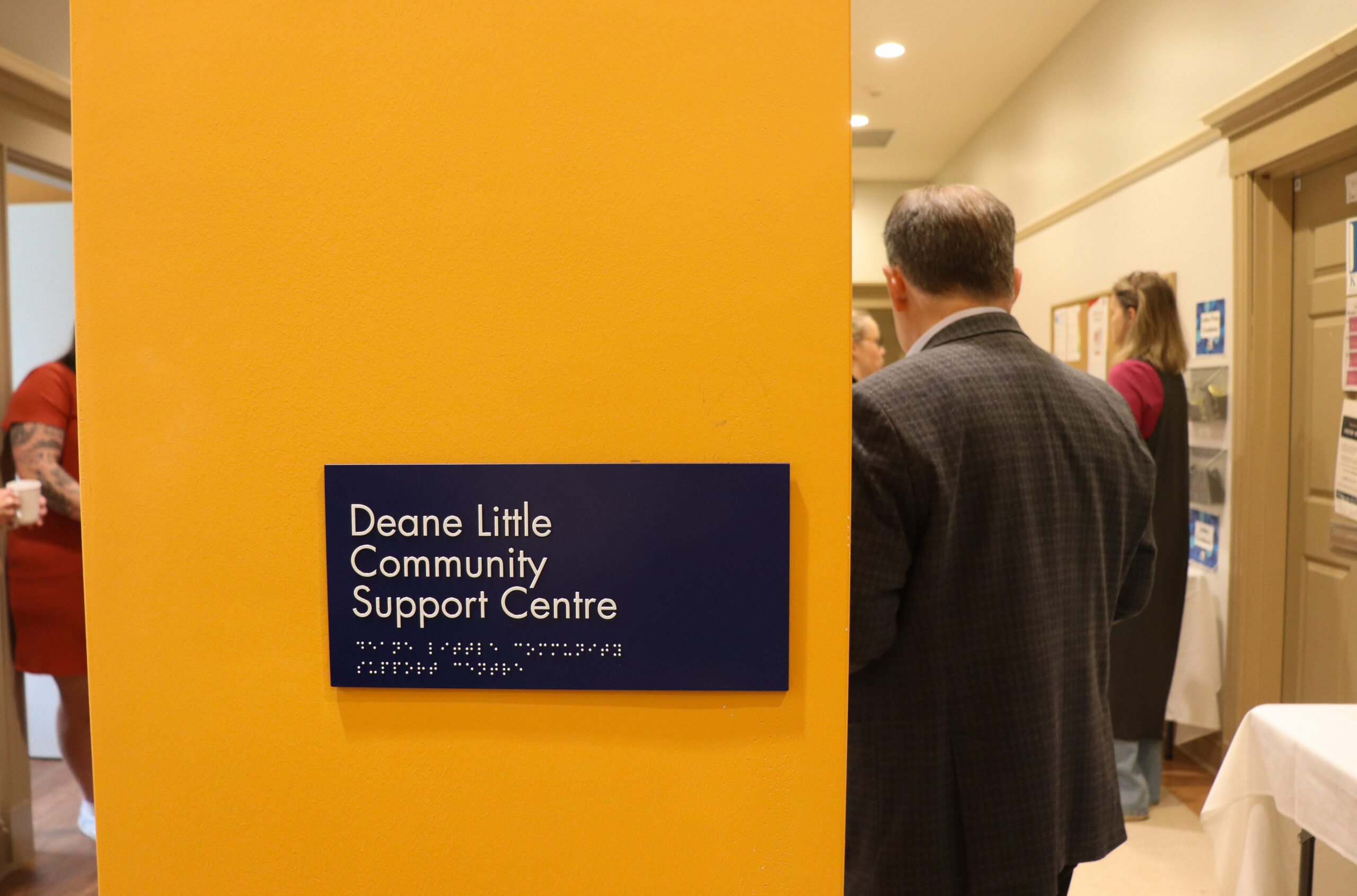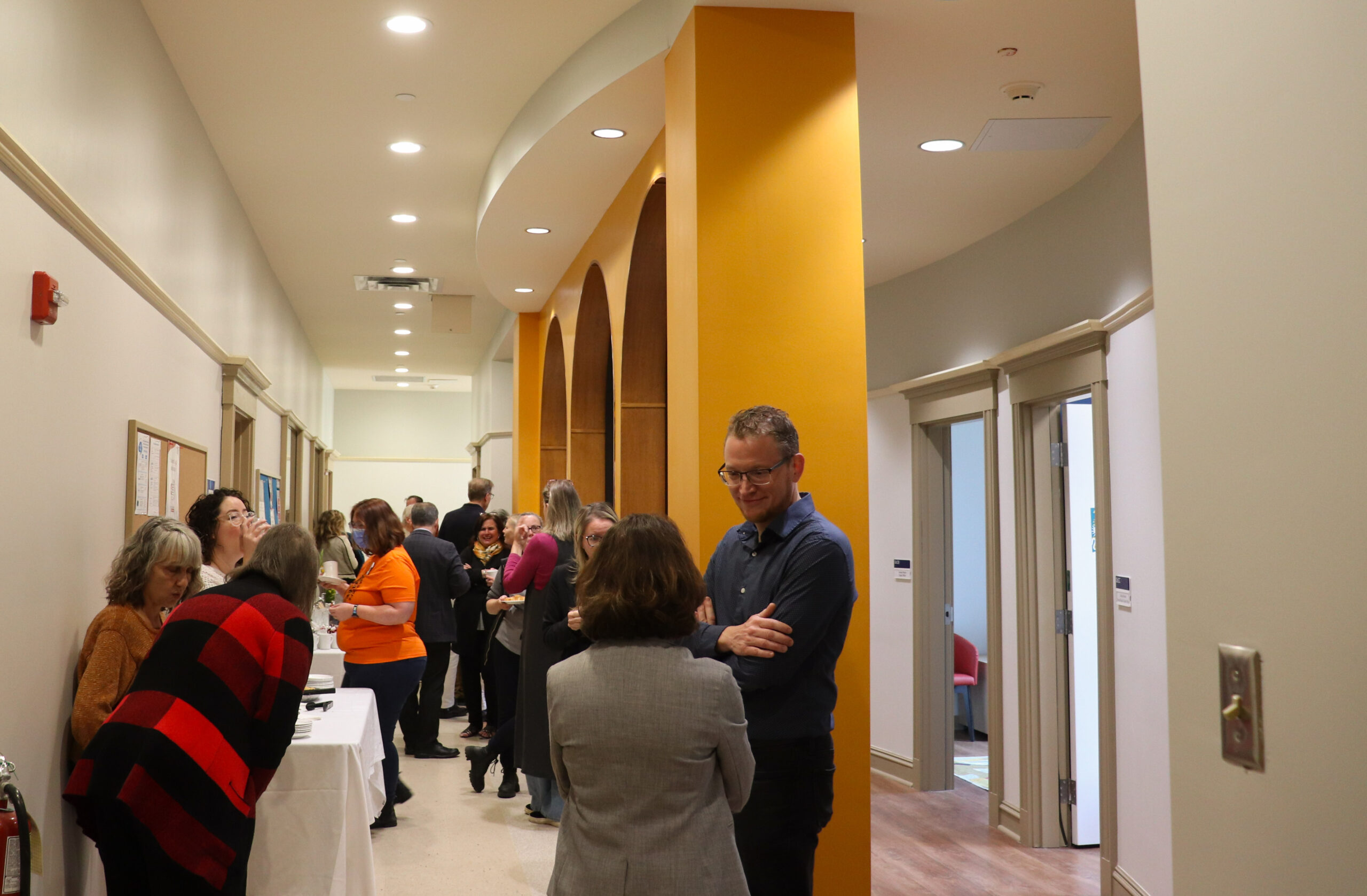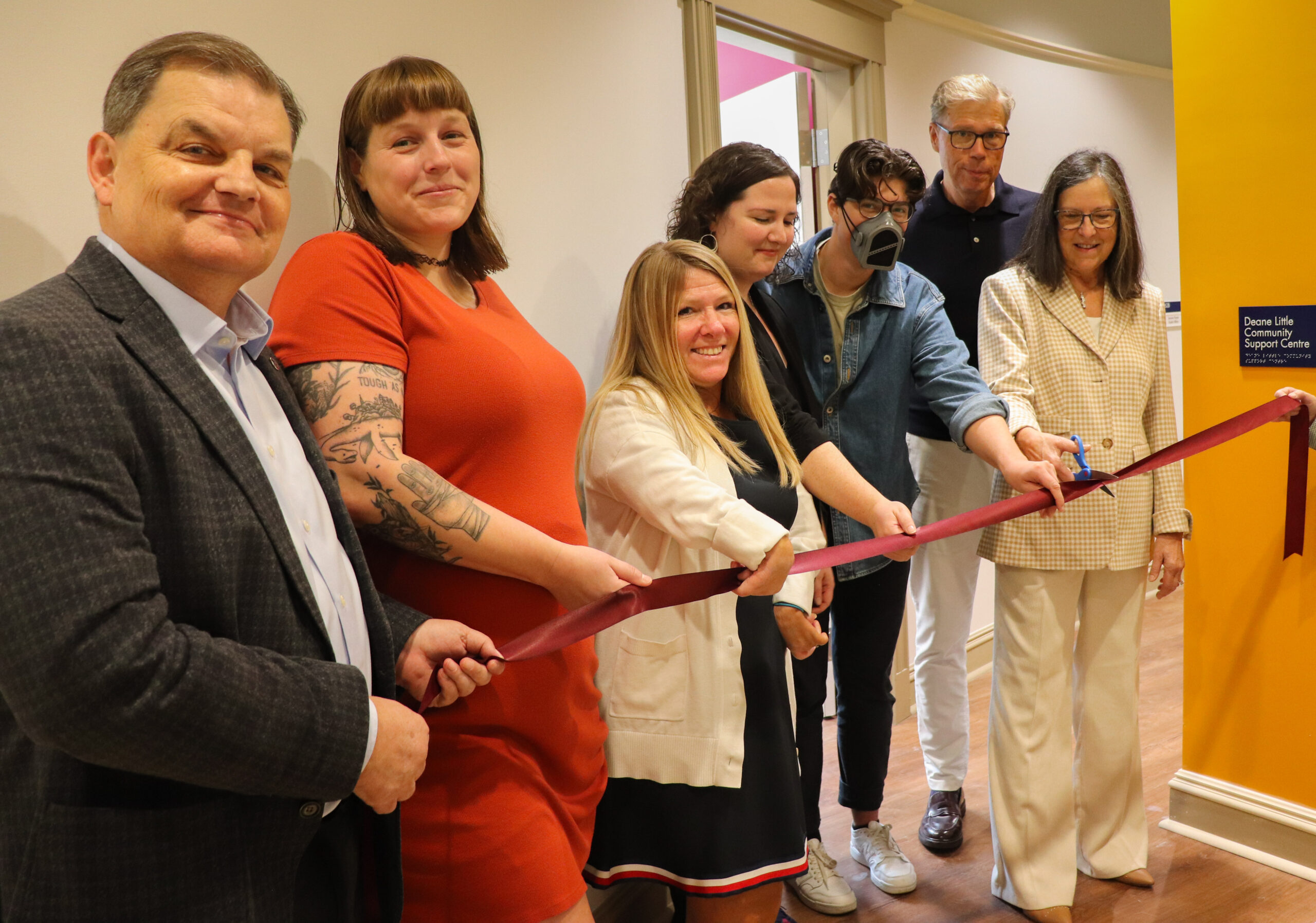Anyone who has been on campus lately will see a significant, and visible, change that has taken place—King’s first dedicated community support space.
It’s a change that reflects a sense of purpose driven by President William Lahey’s mandate, and one funded by the generosity of University Chancellor Debra Deane Little and Robert Little, her husband. In the Deane Little Community Support Centre, King’s now offers students, faculty and staff the ability to connect with a wide array of resources and expertise available on campus to support their success and wellbeing.
The Deane Little gift was crucial to creating a space that truly reflects the unique needs and spirit of its new occupants, and one that is ready to welcome the entire community. “Bob and I have long admired the way the King’s community rallies to support each other. Placing caring for each other prominently at the forefront of this exemplary college is central to its ethos … and just happens to align with our values too,” adds Chancellor Deane Little. “We are happy to provide the support to realize this wonderful new centre.”

Housed in a new space in the Link (the hallway connecting the Arts & Administration building with the New Academic Building) the Deane Little Centre is located in the former home of the Advancement Office (now located off campus, on Brunswick Street). Over the summer, Facilities split the space into four offices, each with a high-arching window overlooking the Willwerth Garden. A bench-lined wall creates a partial separation between it and the rest of the Link.
Ian Wagschal, Director of Facilities at King’s, explains that the idea behind the design was to create a space that would be highly visible to students, while also private enough to honour the specific needs of the support staff now based there.
“It has to be a place where someone could go to talk about their sexual health, or an equity issue, which means they might need some privacy,” he says. “But it’s also a place to go to celebrate LGBTQIA+ rights, or [have a gathering or a workshop.] So the idea was that this space would be on the thoroughfare and yet also slightly tucked away for people walking through.”
For the members of staff who serve the community from this space—Accessibility Officer Michelle Mahoney, Student Support Advisor Isaac Wright, Sexual Health and Safety Officer (SHSO) Jordan Roberts and Equity Officer Jasmine Parent—the newly minted Deane Little Community Support Centre makes a significant difference.
Wright says the new space sends an important message: “… This campus has already come a long way [with accessibility and approachability] in the last few years. I’m definitely hopeful that having such a prominent and cohesive location will help students feel more confident in accessing resources.”
For her part, Mahoney says she’s thrilled to be with the other support staff in one location.
Roberts hopes the new space will help to dispel the misconception that accessing support is something that should be secretive. She says that a common misunderstanding of her role as SHSO is that members of the community should only speak to her when something bad has happened to them.
“It’s not shameful to come into any of our office spaces. There are lots and lots of reasons why people might come to us. And to put these offices front and centre in a group is putting out the message that anyone who needs to drop by is welcome. I just think this is something that can really normalize these kinds of positions, and the idea that we’re here for lots of different reasons.”

Roberts believes the new space also serves as a physical manifestation of the investment King’s has made over the years to providing better supports to its students, staff and faculty. “I don’t just mean financially,” she adds. “There have been lot of conversations and work that [staff members] have been doing in this community for a lot of different issues and on a lot of different fronts. And I think that having a space where we can all be together and be a one-stop shop for staff, students and faculty is a really important piece of it.”
To Robert’s point, although the renovations to create the Deane Little Centre came together relatively quickly—construction began in early May—the change has been years in the making.
King’s President William Lahey says the process really began about two years ago, when the university began hiring new faculty and staff members whose roles align with the values of equity, diversity, accessibility and inclusion (EDAI). EDAI is a major aspect of the President’s Mandate, enacted by Lahey when he stepped into his role in 2016. In 2022, King’s signed the Scarborough Charter, committing the university to becoming a more inclusive community for Black students.
Lahey believes that by making this significant structural change and bringing together these supports, it demonstrates to incoming students and surrounding communities that King’s is committed to supporting and providing resources, especially for marginalized groups.
“This is high-profile space,” he says. “It’s space that students walk by all the time, it’s where the King’s Student Union is located, it’s the hallway between Prince Hall and Alumni Hall. It makes the availability of the supports that we have in place very apparent to our students in particular. And I think that speaks strongly to our values and the strength of our commitments.”

The support staff were highly involved in designing the space. The walls are painted their favourite colours: raspberry pink, sunflower yellow, cobalt blue and emerald green—with coordinated furniture and rugs to match.
“We’ve [rebuilt the space] in a way that still respects and keeps some notion of what King’s is, and has been,” Wagschal says. “So, architecturally speaking, we didn’t knock down the arched windows…we accentuated them. We added colour and we tried some new things in terms of accessibility. We’ve met all the new (accessibility) rules, while enhancing the character of King’s.”
Wagschal says that when he sat down with the support staff, as well as Dean of Students Katie Merwin and Vice President Sarah Clift to discuss features of the new space, physical accessibility quickly became a priority. Mahoney in particular had an active role in ensuring the space was physically accessible.
“All of the door handles will be lever-style, and all of the light switches are going to be down low,” Mahoney says. She is certified to rate buildings on their physical accessibility. “The curved space [just off the Link] where you walk in is going to be wide enough to fit a wheelchair. I think everyone is going to benefit from this, whether they notice these changes or not.”
With a new academic year underway, Lahey says he hopes students will find the space helpful and make use of it. “I hope this space is perceived by current and prospective students and their families as a true reflection of our dedication and commitment to equity, diversity and inclusion.
“It’s for you,” he adds with a smile. “Utilize it and reach out for the support that you may need, so your King’s experience can be as happy and successful as possible.”

